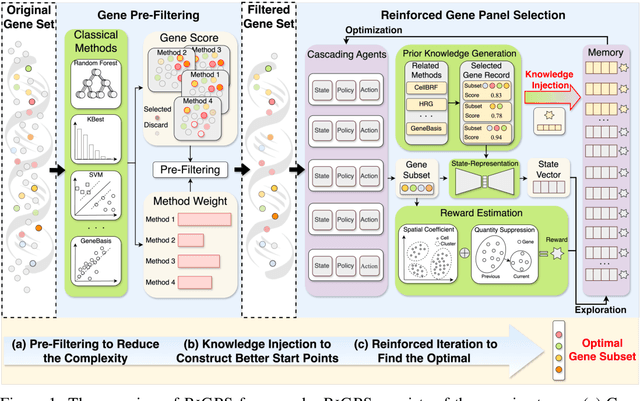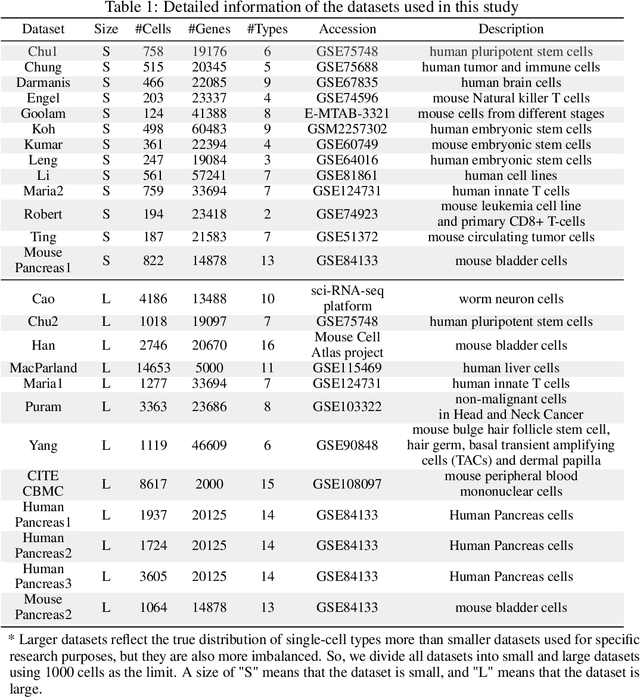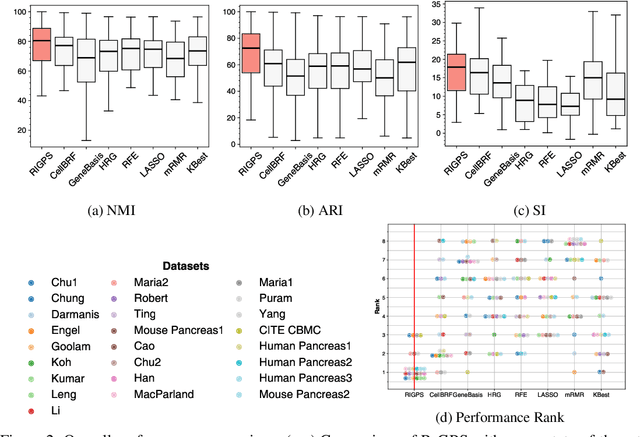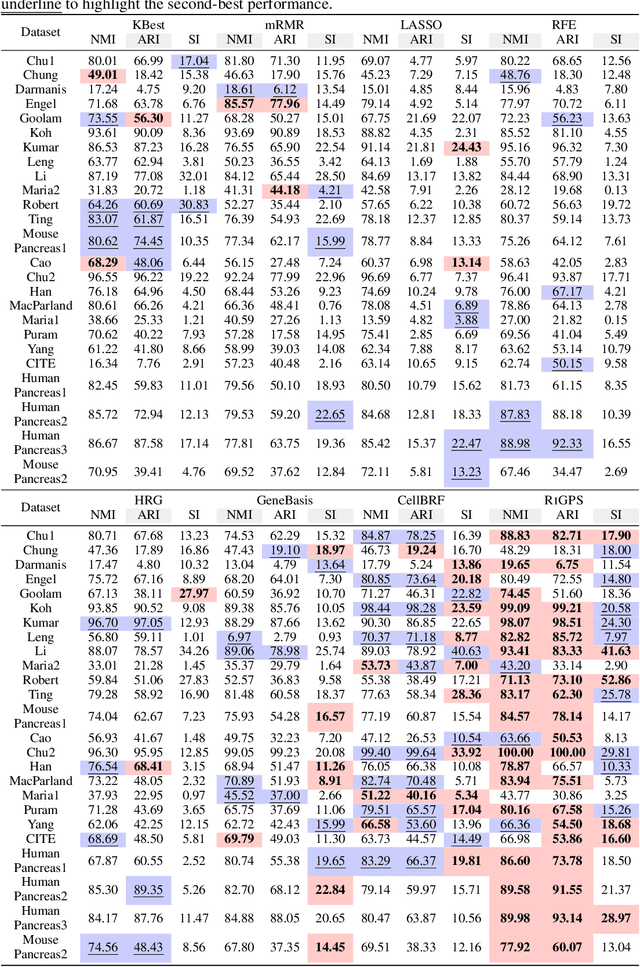Enhanced Gene Selection in Single-Cell Genomics: Pre-Filtering Synergy and Reinforced Optimization
Paper and Code
Jun 11, 2024



Recent advancements in single-cell genomics necessitate precision in gene panel selection to interpret complex biological data effectively. Those methods aim to streamline the analysis of scRNA-seq data by focusing on the most informative genes that contribute significantly to the specific analysis task. Traditional selection methods, which often rely on expert domain knowledge, embedded machine learning models, or heuristic-based iterative optimization, are prone to biases and inefficiencies that may obscure critical genomic signals. Recognizing the limitations of traditional methods, we aim to transcend these constraints with a refined strategy. In this study, we introduce an iterative gene panel selection strategy that is applicable to clustering tasks in single-cell genomics. Our method uniquely integrates results from other gene selection algorithms, providing valuable preliminary boundaries or prior knowledge as initial guides in the search space to enhance the efficiency of our framework. Furthermore, we incorporate the stochastic nature of the exploration process in reinforcement learning (RL) and its capability for continuous optimization through reward-based feedback. This combination mitigates the biases inherent in the initial boundaries and harnesses RL's adaptability to refine and target gene panel selection dynamically. To illustrate the effectiveness of our method, we conducted detailed comparative experiments, case studies, and visualization analysis.
 Add to Chrome
Add to Chrome Add to Firefox
Add to Firefox Add to Edge
Add to Edge